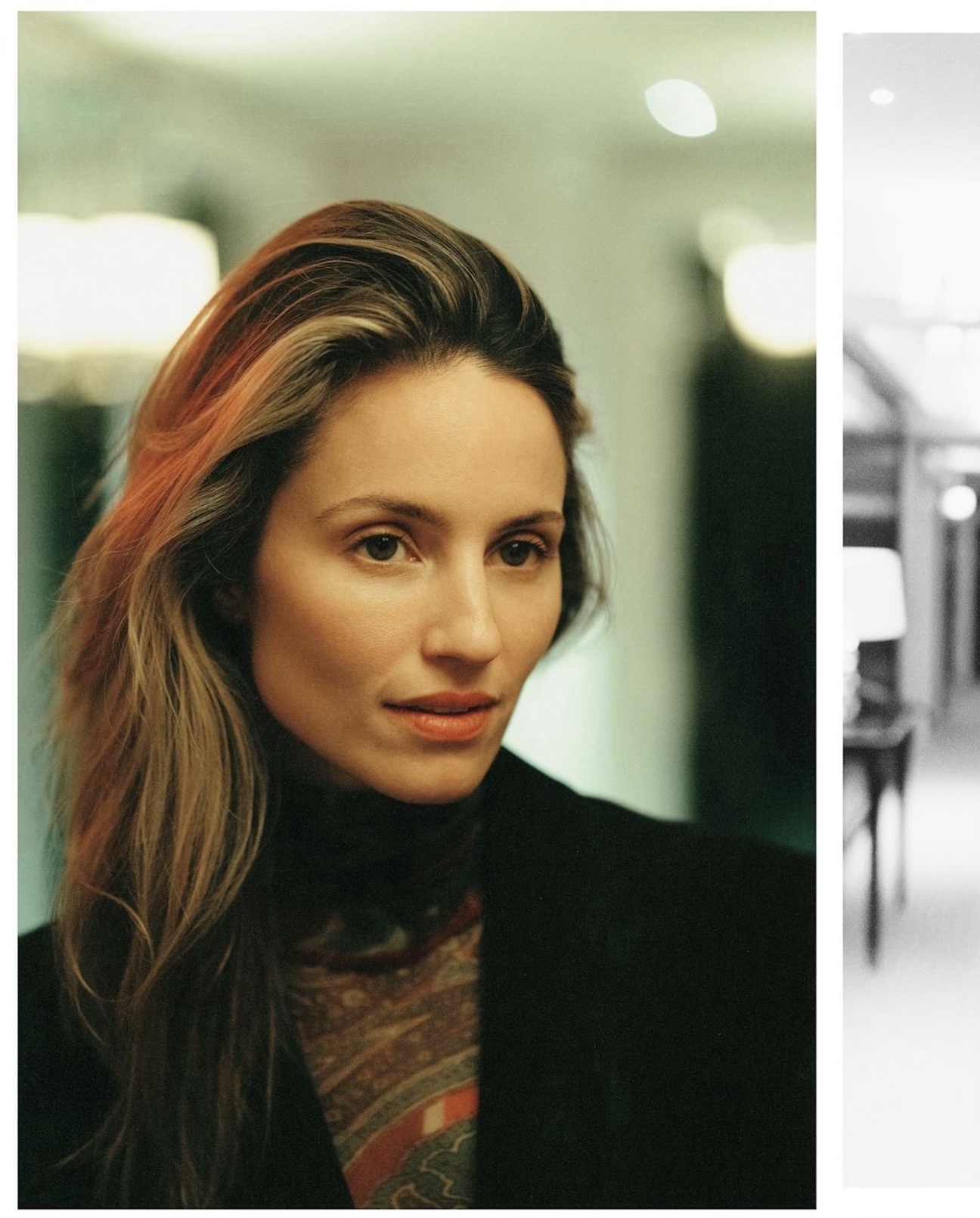
Dianna Agron and Rachel Sennott first crossed paths on set for Emma Seligman's 2020 hit Shiva Baby. Sennott played the titular sugar baby, and Agron was cast as the sugar daddy's oblivious wife. Despite the onscreen acrimony, the pair were able to foster a harmonious friendship. In the years since, Agron has taken roles in a suite of projects, including sci-fi drama Acidman, medical thriller Clock, and fantasy series El Elegido, which debuts today on Netflix. Sennott has starred in off-kilter comedies such as Bodies Bodies Bodies and Bottoms, out next week, which she co-wrote with Seligman. Years ago, when the troupe of women were working on Shiva Baby, they would get on FaceTime and imagine working on projects like these. Now that they have, Sennott and Agron get on one more call (prior to the SAG strike!) to take stock of the ground they’ve covered.
Rachel Sennott: It's so funny because I watched Clock the other day and [that and Shiva Baby] are totally different movies, but there's some similarity in theme: the horror of being a woman and, of course, the terrorizing sounds of a baby. How do you pick your movies?
Dianna Agron: Can you imagine if my response was, “Just anyone that will have me”? Truly though, I just feel so lucky that the last few years have really evolved in a manner that offers me the opportunity where, not only am I acting in very diverse landscapes, but I’m also given the opportunity to play. Last year was definitely my first foray into things that were a bit stranger or supernatural, things that weren't necessarily grounded completely in reality.
With our film, it was so obvious to me. Watching the short that you made with Emma [from which Shiva Baby was adapted], stylistically it was perfect. You were perfect. The script absolutely spoke to everything I think, as it relates to all of the challenges of becoming a more adult version of yourself and what it is to be a woman.
The longer you're in this industry, people oftentimes start to understand who you are and what your capabilities are. When you’re younger in this process, people can make more assumptions about those things and then, the longer you're here, the more people might hear you giving a talk or experience you at a dinner, and be like, “Oh, this is what she's into.”
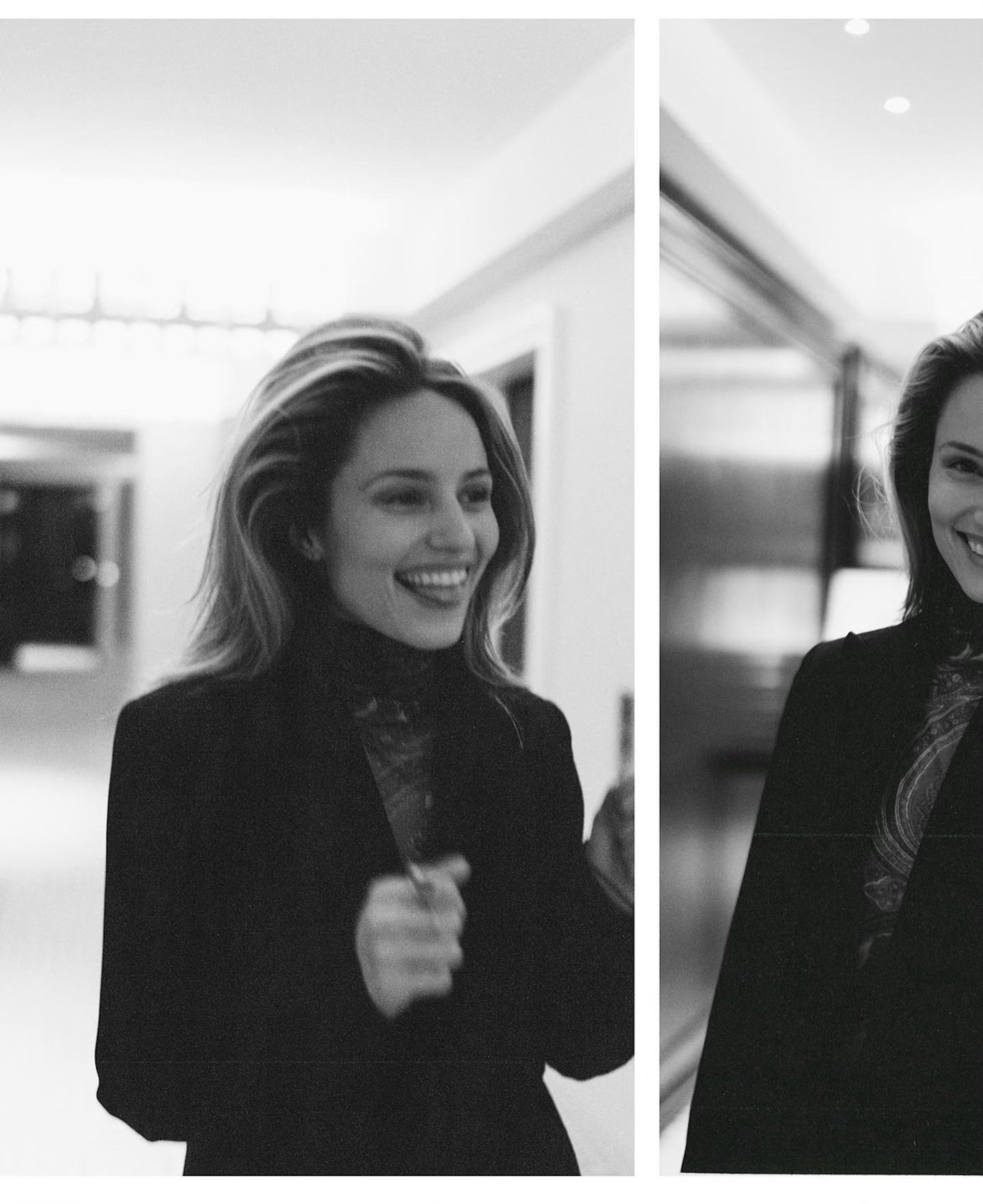
Sennott: Going into Clock versus Acidman versus El Elegido, do you feel like when you're approaching different genres, that your approach to acting changes? Or do you take it just scene by scene?
Agron: Acidman was a really unique experience because we were encouraged to incorporate improv in a real way. And it's very truncated—similar to Shiva Baby—I think it was 19 or 20 days of filming. So you really had to be on once you were there. I remember in acting lessons, they'd be like, “It's like a ball. He's throwing you the ball. You're picking it up. You're throwing it back.” So often, I was studying his face and waiting for what he was gonna say—Thomas Haden Church, who is so fabulous.
Sennott: He has the most expressive, incredible face. He can say something so funny, but in the most dry way.
Agron: Yeah, I know. My voice is a deeper, huskier voice naturally. Obviously so is his. One of the first things that he said to me was, “I dig your voice. It's really groovy.”
Sennott: I feel like, with that project, you were really shaping it.
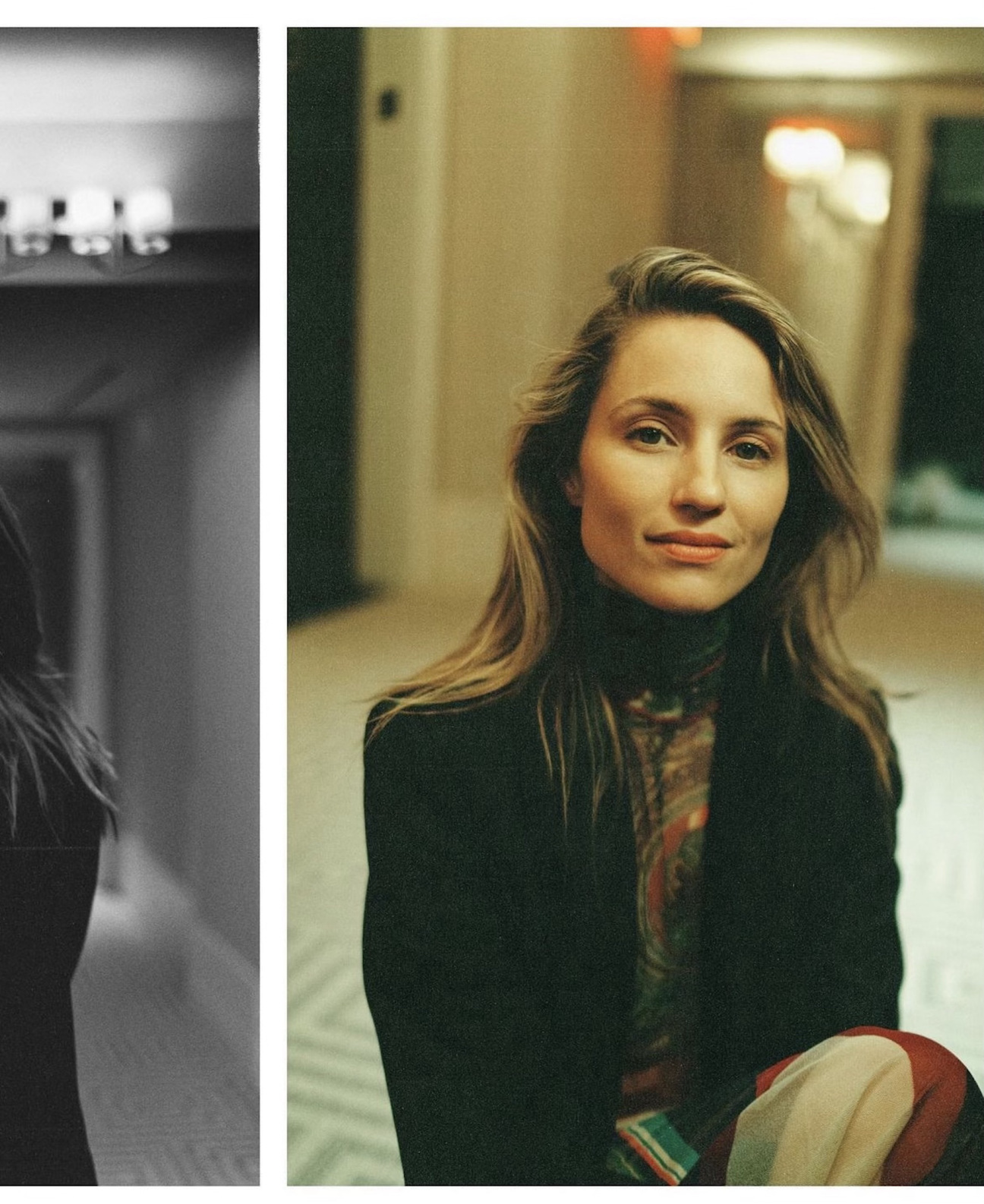
Agron: Clock was the absolute opposite. Our script really was our blueprint. It was word for word. There was no deviation. It was funny and surprising that everything you see in that film is on the page, including the stunts. You know that moment where I'm hanging over a cliff? I was actually hanging over a 60 foot cliff. It makes me think about this movie that I didn't end up doing. It must have been eight or 10 years ago. I'm fine with water, but I've never scuba dived and I don't think that's in the cards for me in this life. I just have this fear of not being able to rise above and take a breath. But, I had signed on to this film; I think, 80 percent of it was underwater. I thought, “Oh, I'll just learn it.” You, as an actor, just over eagerly think that you can commit to something and it'll work out. I think that is the best thing that never happened to me.
Sennott: I'm imagining acting underwater and trying to make choices. Like, No, I'm just trying not to drown.
Agron: I was on a vacation not that long ago on a beach, and I started doing this thing to see how long I can hold my breath underwater for. It's really not that long, but you think you're probably short changing it and that you just have to ease in and relax yourself and then you can do twice the length or whatever. [I couldn’t do] more than 25 seconds. There's all these people in Avatar and Black Panther, all these people that are doing this underwater acting. I don't think it's for me.
Sennott: It absolutely is not. You said 25 seconds, I'm giving like nine seconds if we're being generous. I'm under and then I'm immediately up. So we'll stick to the land films for now.
Agron: Land people.
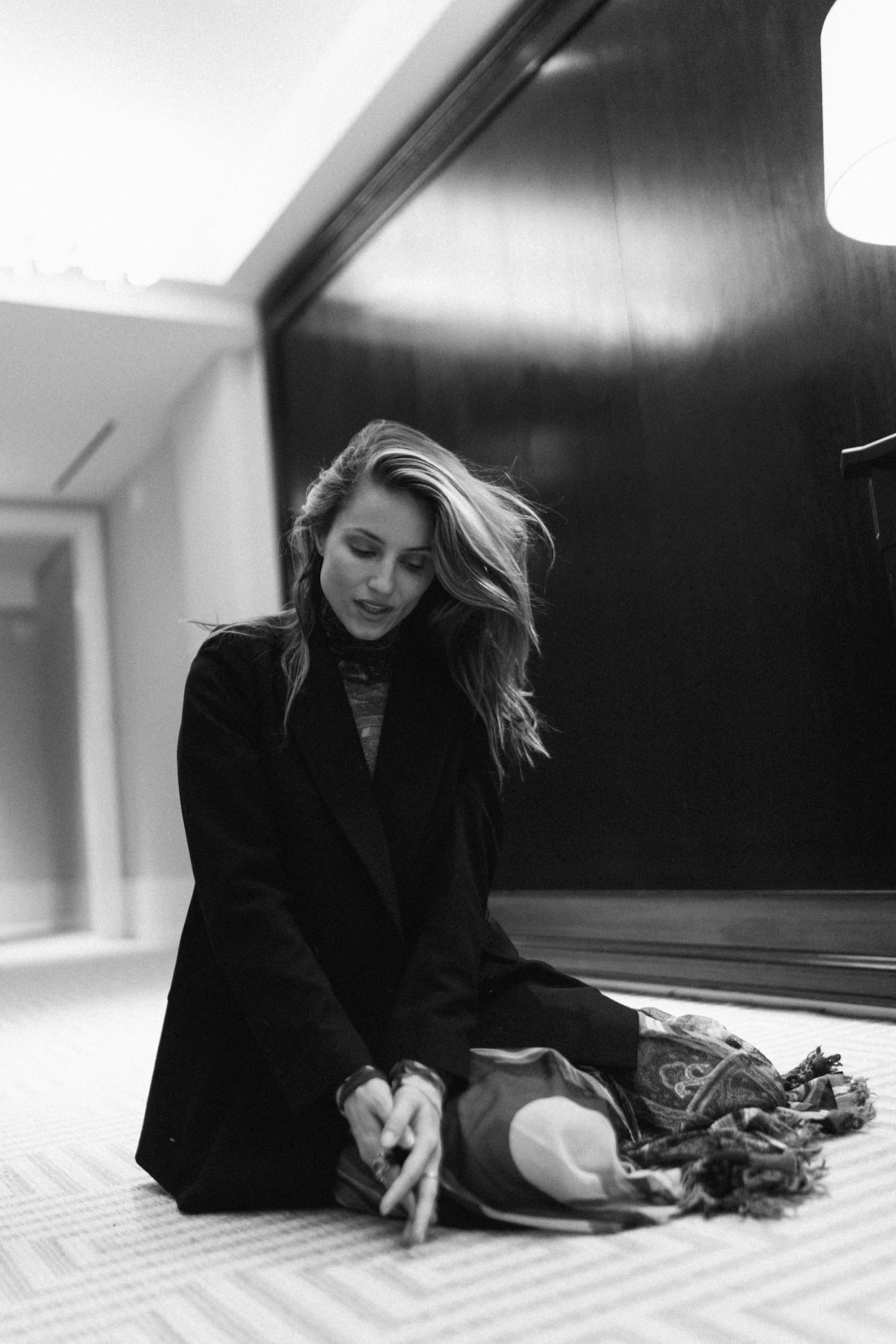
Sennott: What was it like doing [your residencies at Café Carlyle]? How do you take care of yourself, and what does it feel like to be doing something that's live in front of people as opposed to going to set and shooting?
Agron: I think the difference between is that—it's obviously not this simple—but you become a night person. Sometimes on set you're a night person too, but when you're doing a stage show, you are a night person and everything in your day is organized around being your best, shiny, ready-to-go self at night. If you get up before noon, you're a genius champion.
Playing the Carlyle was one of the first big goals I had, and one of the many reasons I wanted to move to New York. I thought, If I can play at the Carlyle, I'll feel like more of a resident of this city. It’s a place that has so much history and nostalgia. The very first time I did it for a week, and the second time I did it for two weeks. The songs had more buoyancy; they were all kinds of love songs from the ‘60s and ‘70s, all female. We did Eartha Kitt and Doris Day and Blossom Dearie. The time before last, I had an eight piece band, which was maybe testing. I don't think you could fit nine people on that stage. Our music director was really worried, but we sandwiched and Jenga-ed ourselves onto that stage.
It's really fun in that room because it's only 90 people. You really can see every single person in the room and really experience whatever is happening. The last time there was this woman, I just asked her, “Oh hey, how's it going?” She was like, “Not good. I'm on a terrible date with this man who happens to be my boyfriend, but probably not for long.” She was maybe in her late 60s, early 70s. Everything about this—her delivery, her candor, everything—was quite fantastic and fabulous. People thought I had planted her.
Sennott: There is something about live performance where even if the set list is the same, it feels like the show is never the same because you never know who you're feeding off of.
Agron: I've had the pleasure of seeing you on stage a few times. What do you feel is the biggest take away from a show?
Sennott: I have to say, you've come to like some of the best and also worst shows. So that’s how I know you're a really good friend. I remember you came to a rooftop in Bushwick where there was a pool and you're like, “This is lovely.” I was like, “Oh my God.”
Agron: It really was fantastic. Don't you want to see shows in different environments?
Sennott: Very true. It's a different vibe. I will say, I feel like the best show is something where you think it's going to be bad, and then it turns out incredible.
Agron: When you say it's gonna be bad and it turns out incredible, is it because the initial 10 or 15 minutes don't seem completely connected?
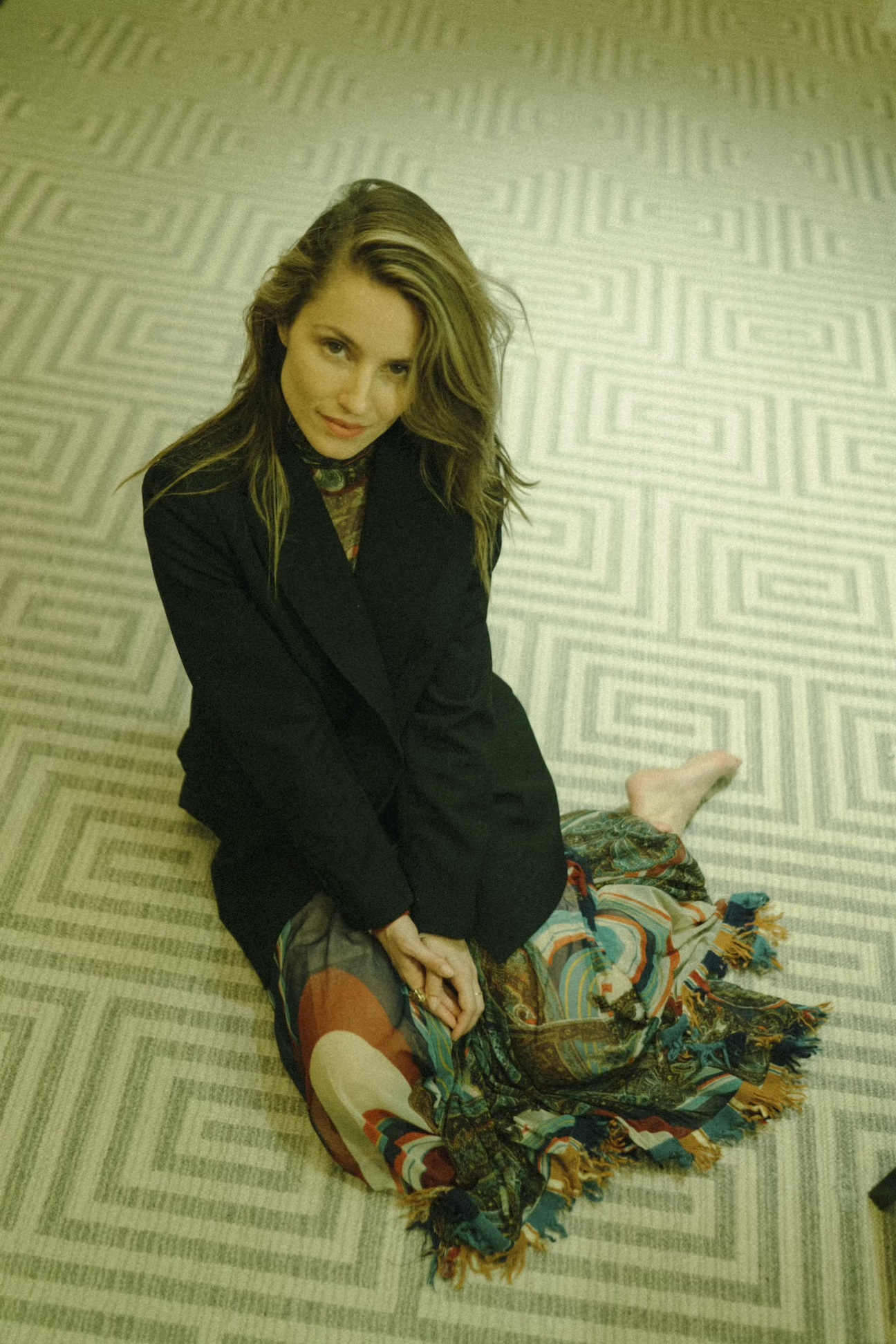
Sennott: Like that show you came to, they're pitching it like, “It's this crazy party show. It's so fun.” So you invite your friends. But you get there, and it's people on a roof, sitting in a kiddie pool in bikinis. You're like, “What did I sign up for?” The mic is really falling apart. But then, if you can turn something like that into a fun night, then it feels like you've done something. Or if you’re doing a show every day, you’re going to have a day where you’re like, “I don't feel like my best self.” And then you have to turn it around. When you can, that feels incredible because you're like, “I rose from the ashes, I pulled off a show.”
Agron: I'm excited to see Bottoms. I just remember when you and Emma had allowed me to read it before it was in production and had a name.
Sennott: Oh my God. I remember you sending us an email or text saying that you got what we were trying to do, and we were like, “Okay, it makes sense.”
Agron: It’s deeply funny, and I imagine there's such a benefit to doing something with Emma, who is your creative partner, a best friend, somebody that you really trust. You had Shiva Baby as a first feature. Moving forward to this, how did you feel being on set?
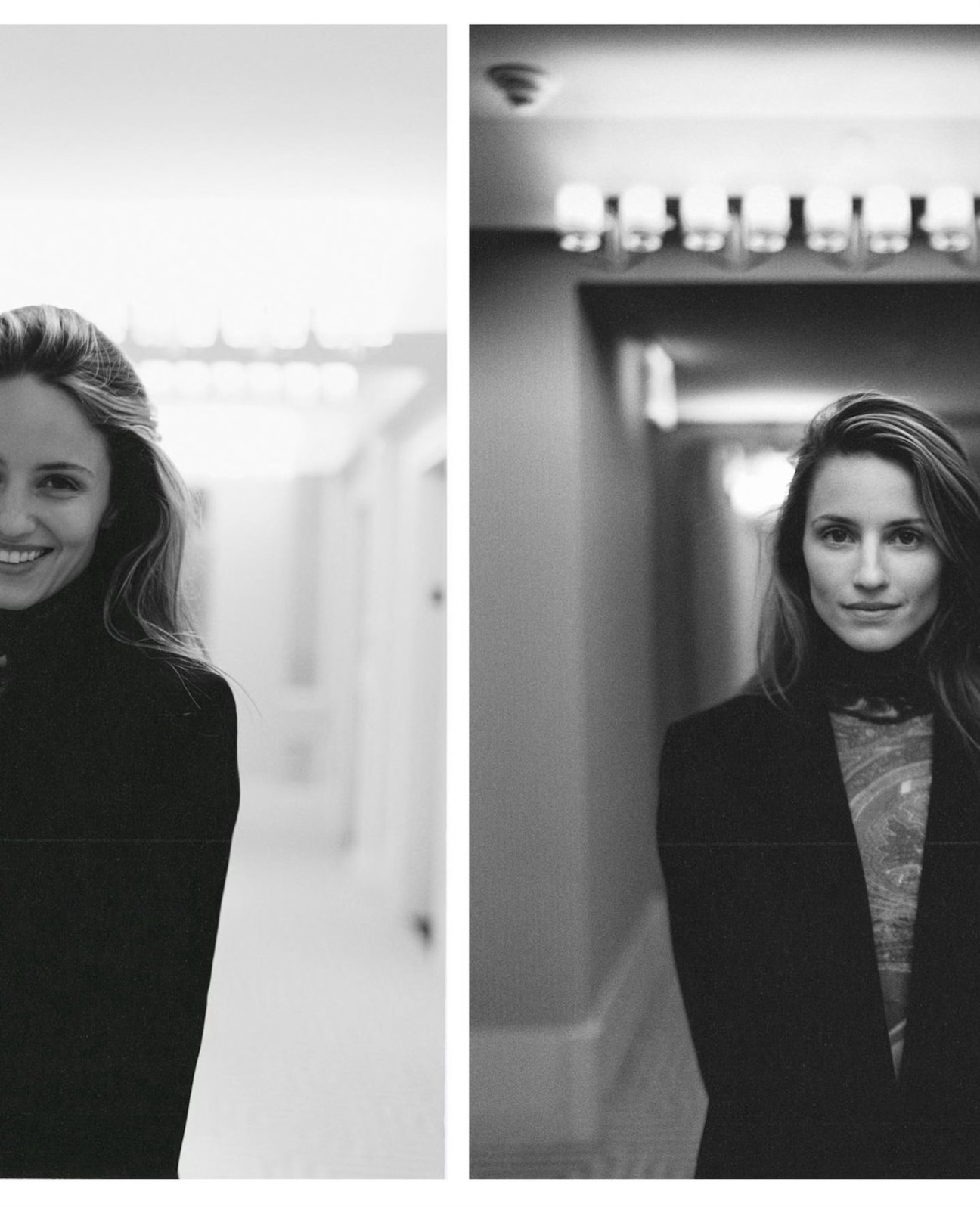
Sennott: We kept talking about Shiva Baby because the movie is so different. We were in one house; it was Emma and older people who are incredible actors. In between takes, they're just staying in the same place. Nothing crazy is happening. Now you cut to a giant football field; everyone's 22 and running and we're like, “What's going on?” During covid, really talking during those Facetimes—you, Molly [Gordon], me, and Emma all talking about the things that we wanted to do next—it felt, not insane, but sort of hard to picture. This year, you have so many incredible things coming out. Molly's movie came out. It's just exciting to be like, “Okay, we did it.”
Agron: Well, with this group of women, my confidence will never waiver. It's really important to have agency and to be able to understand that you can make things and that you don't have to wait for the phone. For some of the best ideas, you're gonna be the one to have them for yourself. How can you expect somebody else to read your mind? To pay attention to what you're thinking about? Dreaming about? Writing about? Your own experiences? The things that you're writing that have little to do with your own experiences, but are your unique brain? I think it's really important to have—which obviously this group does—the ability to craft things, to see things from the ground up.
Sennott: It goes back to what you were saying about showing people what you're into. Not everyone is gonna just hand you the most complicated female character. You start to put things together and you start creating stuff and pulling it together, and then I think people start to see. It's empowering to have agency to push that forward.

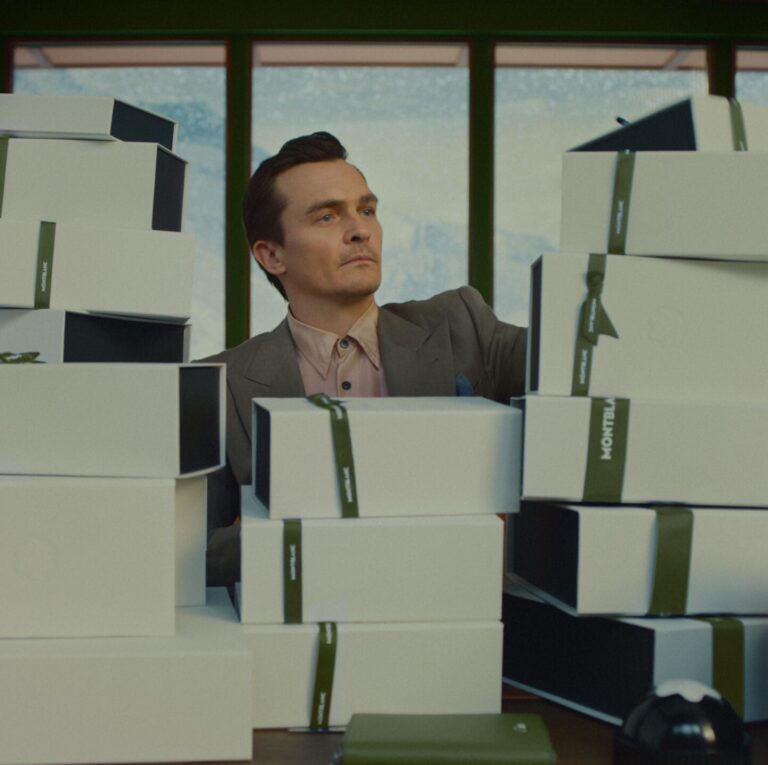
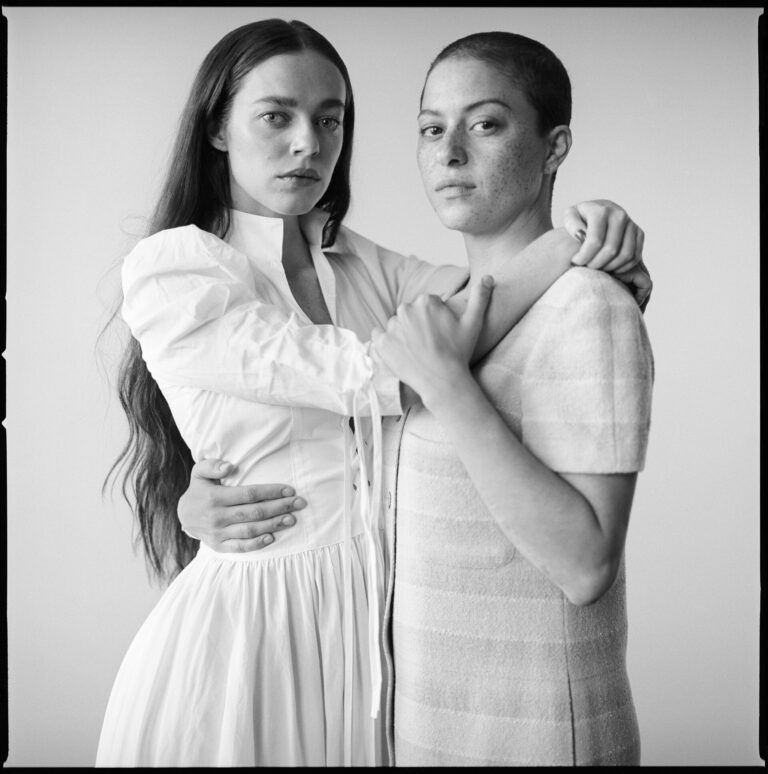
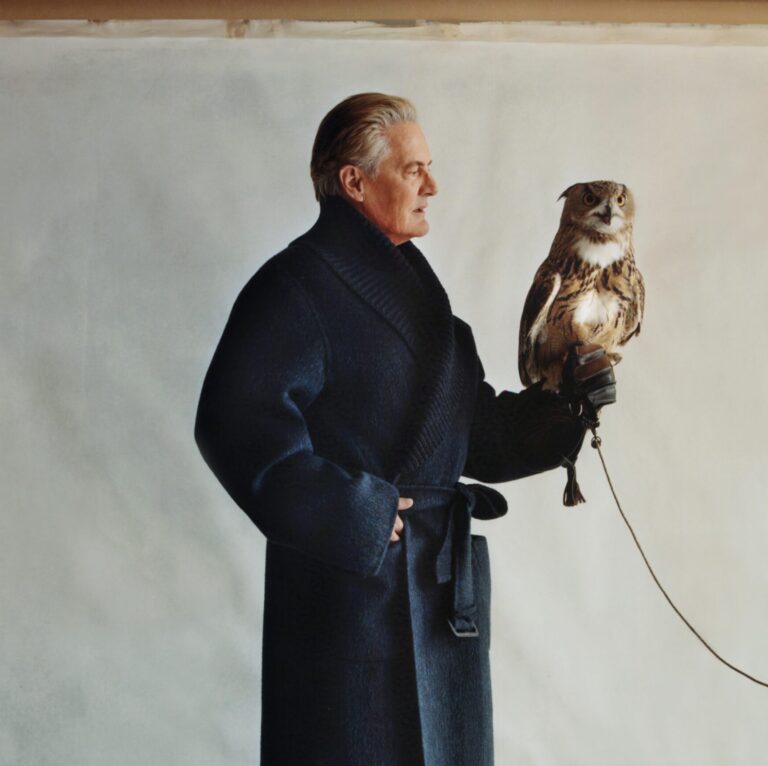

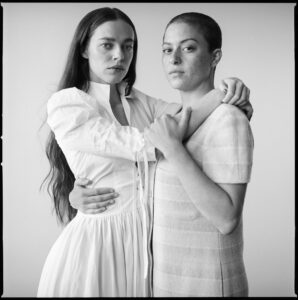
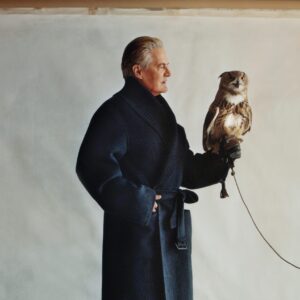



 in your life?
in your life?

